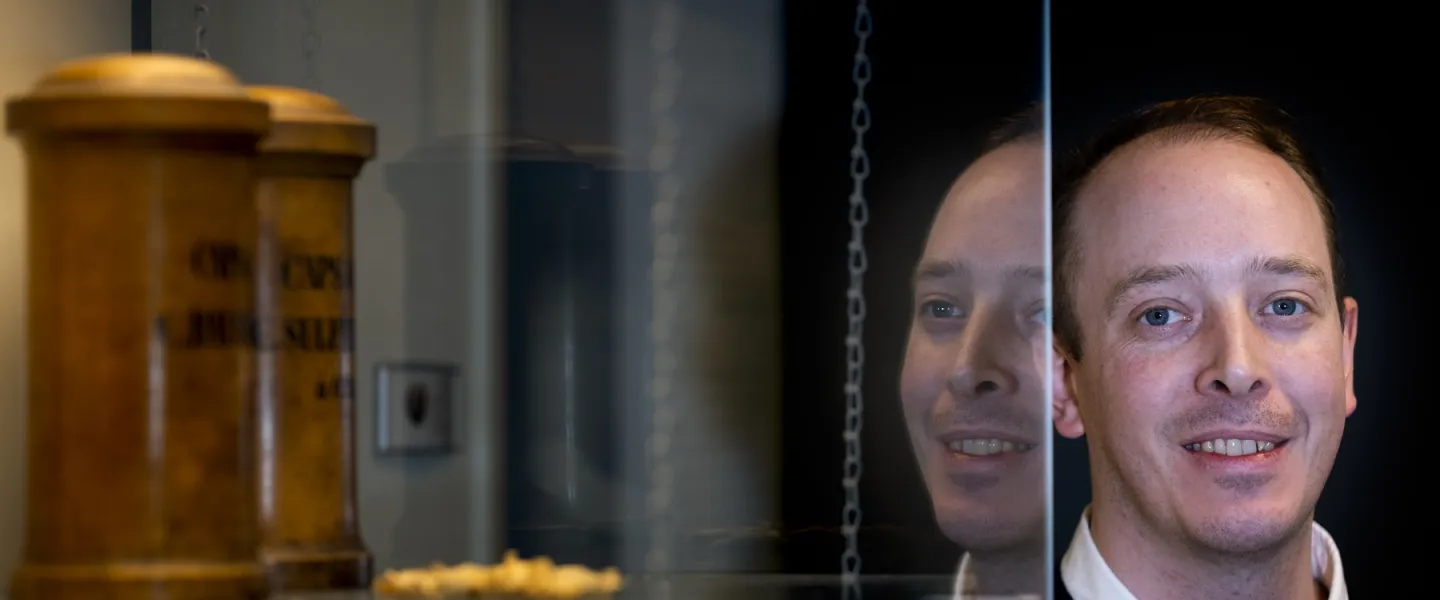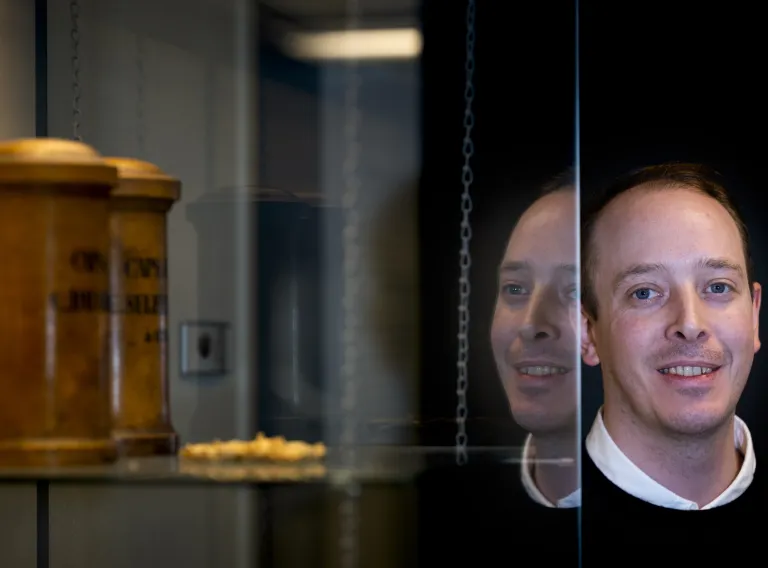
University research is about continuously re-evaluating and developing accepted ideas and searching for new knowledge and new solutions to improve lives and benefit society as a whole. In order to fulfil this role, institutions like the University of Iceland need to recruit people with new ideas and new knowledge who can enhance and broaden the scope of research and teaching. This includes former students who have left to pursue further education. When they return, they bring with them knowledge and ideas that strengthen the university and indeed the country. Haraldur Gunnar Guðmundsson, who recently began working at the Faculty of Pharmaceutical Sciences, is an excellent example of such a student. He is now working on an exciting project, aiming to develop new methods for something called isotope labelling, which has to do with the smallest building blocks of drugs: the atoms themselves. Isotope labelling is key to drug development. Haraldur and his colleagues recently published a paper in Nature Synthesis, part of the prestigious Nature Portfolio. The paper presents new methods for isotope labelling in drug research.
Haraldur, an assistant professor at the Faculty of Pharmaceutical Sciences, completed an undergraduate degree in chemistry at UI before commencing his doctoral studies at the University of Oxford. After obtaining his DPhil, Haraldur continued as a postdoctoral researcher in Oxford for additional two years. He then left to work at Aarhus University before returning to Iceland last autumn. "I always intended to come home – it was a question of when, not if," says Haraldur.
"After starting a family in the UK, I quickly realised how important it is to be close to your wider family, but it was the pandemic that really hammered that home. That said, I've always been determined to stay in academia, so of course I was delighted to be offered the position of assistant professor at the Faculty of Pharmaceutical Sciences. This job gives me the opportunities and support I need to pursue my own independent research, for which I am very grateful," he says.
Isotopes are key to researching the effects of drugs
Haraldur's research looks at areas such as organic chemistry, medicinal chemistry and isotope labelling. "My main research interests at the moment are about developing new methods to form compounds that contain isotopes. Isotopes are atoms of the same element that have a different number of neutrons. Consequently, Isotopes t have different atomic masses, without significantly affecting or changing their chemical properties, because the atomic number remains the same, i.e. the number of protons in the nucleus. Chemists and pharmaceutical researchers have exploited this difference in order to investigate the effects of new drug identities, particularly in consideration of unpredictable metabolic pathways that may affect metabolism and breakdown of drugs in the body, in order to determine the safety of the drugs and to further our understanding of the way they work," explains Haraldur.



